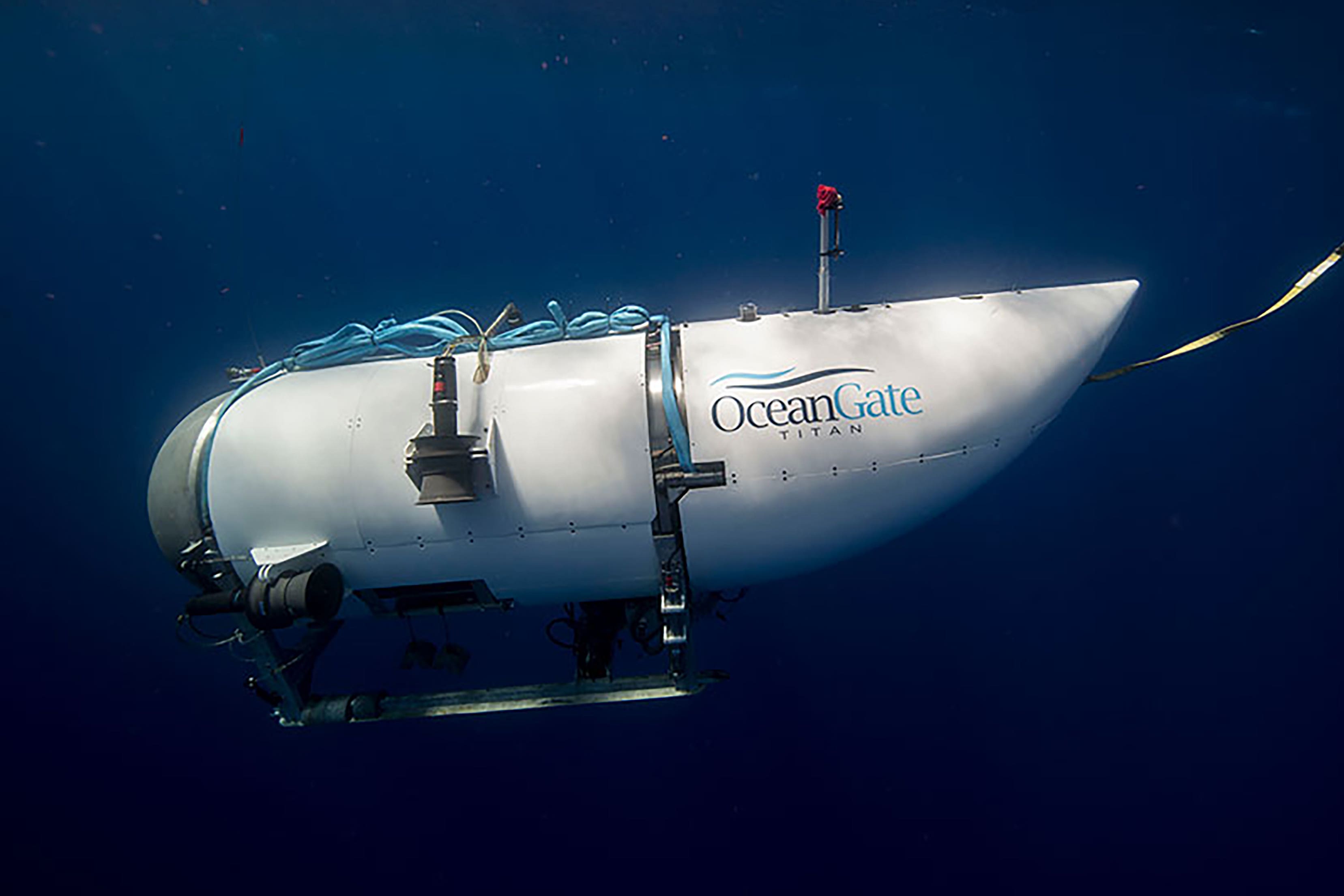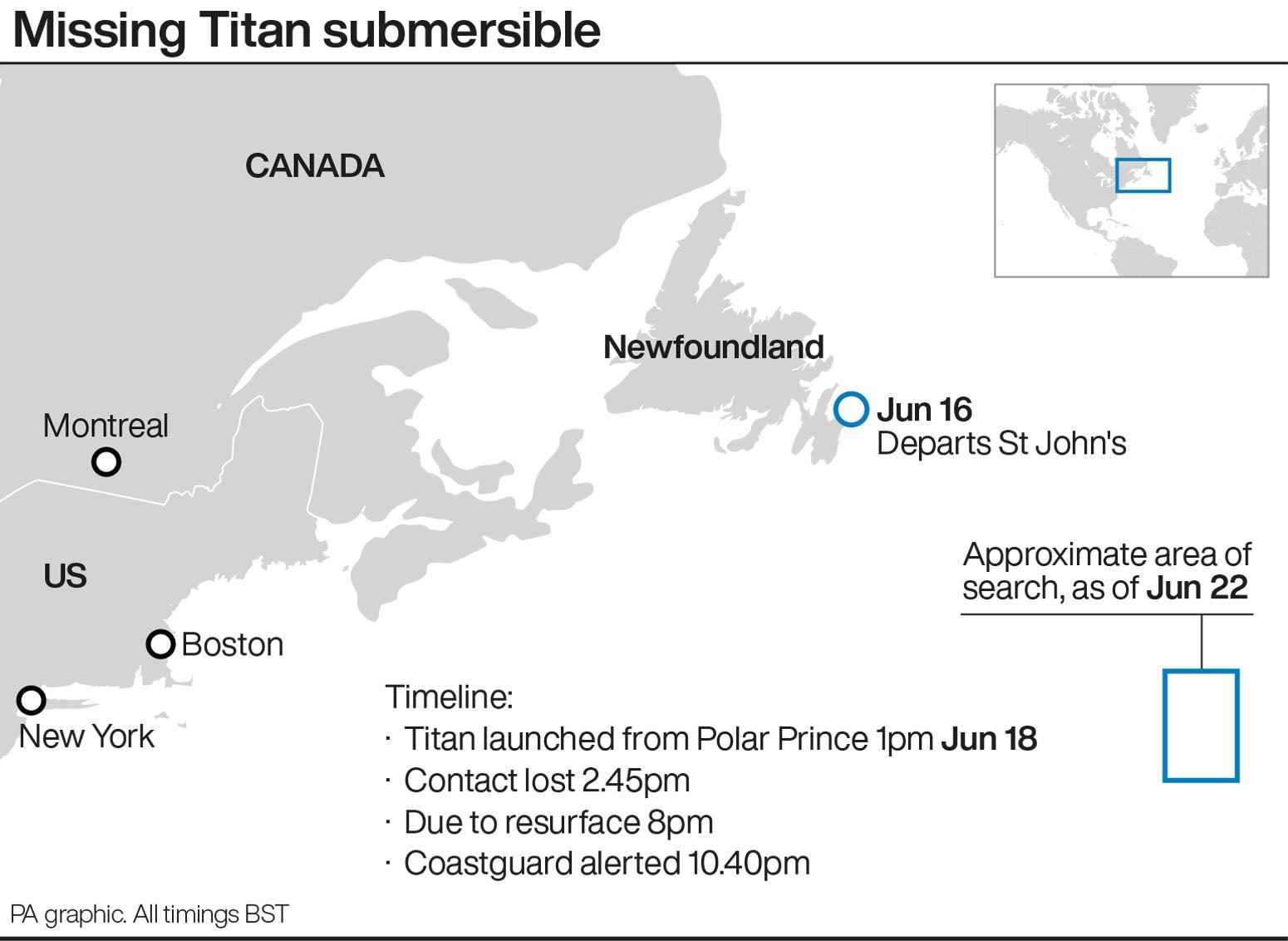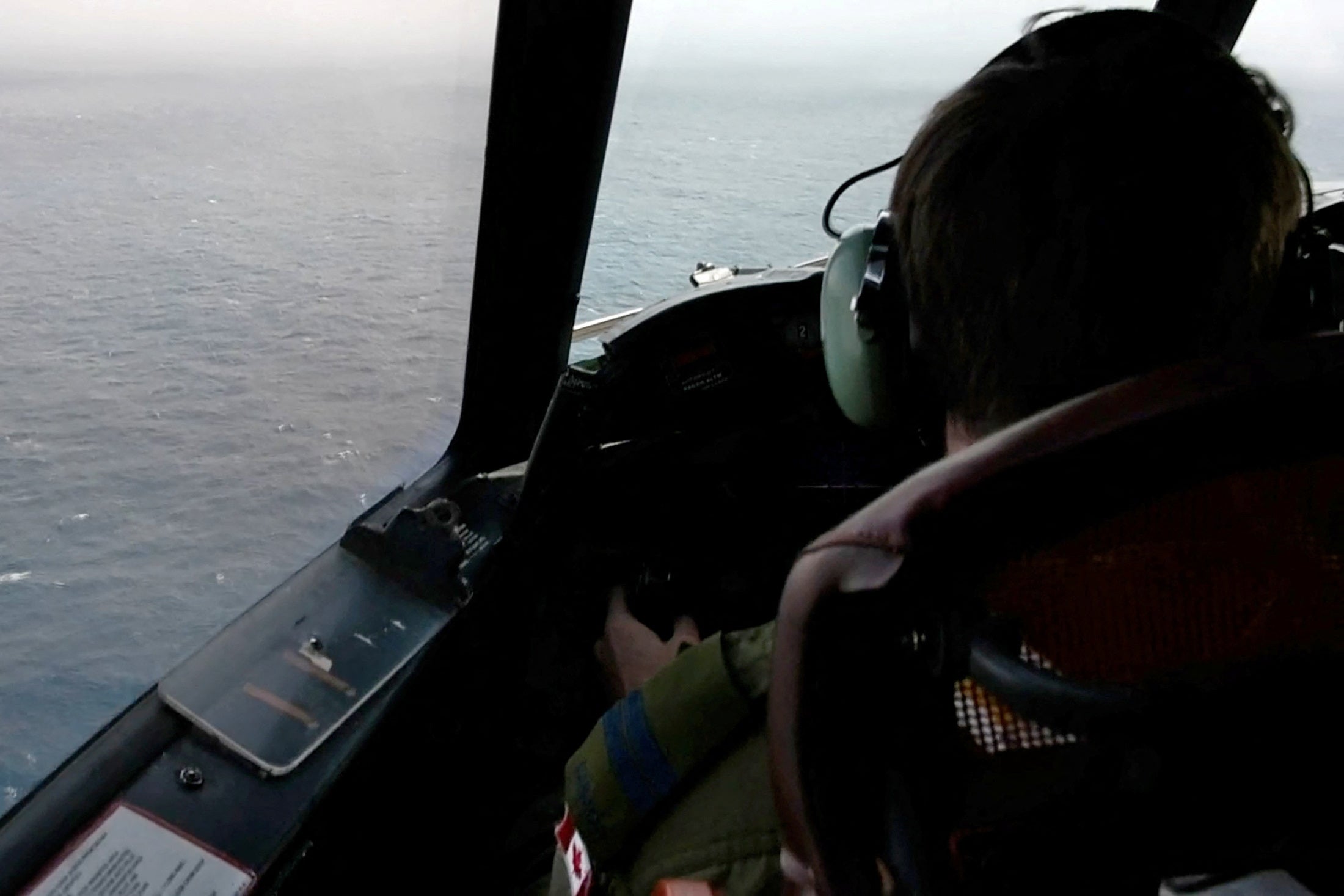Frigid water could keep Titanic sub passengers alive longer than predicted, expert friends say
Experts suggest the five will be cold and most likely hypothermic, which leads to a reduction in the amount of oxygen consumed
Close friends of those stranded on the missing Titanic tourist submarine are urging the rescue mission to continue, despite the suggestion they have run out of oxygen, as experts suggest the near-freezing temperatures could keep the five alive longer than predicted.
After the US Coast Guard estimated the vessel will have run out of oxygen at 1pm UK time on Thursday, an explorer friend of British billionaire explorer Hamish Harding said he believes several factors mean they could have longer than first thought.
Professor Mark Hannaford, the founder of World Extreme Medicine, said that “we should not give up hope” for his friend and the four others on board the Titan, while co-founder of OceanGate Guillermo Sohnlein said: “I continue to hold out hope for my friend [Stockton Rush] and the rest of the crew.”

The US Coast Guard spokesperson said the estimated time that air supplies were set to run out is based on the number of hours of oxygen the craft had for the five people on board - 96 - and the time it submerged - 1pm UK time on Sunday.
However, experts suggest the five will be cold and most likely hypothermic, which leads to a reduction in the amount of oxygen consumed - and the assumption the Titan is equipped with an emergency oxygen supply to last only four days is based on five people operating normally in ordinary conditions.
The Explorers Club, a network of experienced explorers, said it believes “crew conservation and the near-freezing temperatures could prolong life support”, despite the depleting supplies. “The crew will be aware of this and will actively exercise conservation,” said the group, which has two members stranded on the submersible, Mr Harding and renowned French diver Paul-Henri Nargeolet.
Its President Richard Garriott de Cayeu said: “We remain hopeful for the successful rescue of the five crew members.”
Therefore, Mr Hannaford told The Independent: “We should not conclude the opportunity to rescue them. All efforts should continue until the point of impossibility. We shouldn’t give up hope as we don’t know what’s going on down there.”
Mr Sohnlein, the co-founder of the company that led the expedition to the Titanic wreck, spoke out about the missing submersible for the first time on Thursday morning, echoing what Mr Hannaford is calling for.

Describing Thursday as a “critical day” due to dwindling life support supplies, he told of “firmly believing the time window available for their rescue is longer than what most people think”.
Mr Sohnlein said the pilot is his co-founder and friend Mr Rush, whom he last spoke with a mere two weeks before the Titanic expedition set off on Sunday. “I'm certain that Stockton and the rest of the crew realized days ago that the best thing they can do to ensure their rescue is to extend the limits of those supplies by relaxing as much as possible,” he wrote on Facebook.
“I would encourage everyone to remain hopeful for getting the crew back safely,” he said, referencing a similar rescue operation in 1973, which was successful in saving the two pilots trapped underwater in their submersible Pisces III.

Among the group are seasoned explorers, so Mr Hannaford similarly imagined the five are currently “lying there, not speaking, doing absolutely nothing” to conserve oxygen. “These people know what they’re doing. There are some pretty experienced guys down there - they know what the drill is.”
This includes Mr Harding, who was on the expedition for science research and is a founding member of The Explorers Club, through which Mr Hannaford met him a couple of years ago. The professor spoke of how close Mr Harding is to his two sons and said the family is “going through absolute hell. I can’t imagine what’s going through their heads - any discomfort I feel is a shadow of what they’re going through.”
Aboard the Titan with Mr Harding, Mr Rush and Mr Nargeolet are Pakistani businessman Shahzada Dawood and his 19-year-old son Suleman Dawood.
The search for the five has intensified in recent hours as the deadline for the remaining oxygen passes.
Rescue efforts are all the more urgent after Canadian aircraft searching for the submarine in a remote part of the North Atlantic Ocean detected intermittent “banging” noises from the vicinity of its last known location, the US Coast Guard said.
Crew searching for the missing sub heard banging sounds every 30 minutes on Tuesday and again four hours later on Wednesday after additional sonar devices were deployed.
However, the US Coast Guard clarified that they “don’t know the source of the noise”.
The massive search and rescue operation has been ongoing for four days after the watercraft submerged on Sunday morning from its support vessel, the Polar Prince, to travel to the Titanic wreckage, which sits at a depth of 12,500ft, and lost contact about an hour and 45 minutes later.
The submersible craft is said to be equipped with a four-day emergency oxygen supply. Other deadlines for when this is set to run out have been bandied around, such as 12.08pm UK time on Thursday - but the US Coast Guard told The Independent they did not know where that time had been sourced from.
The US Coast Guard’s latest estimate is a slight revision after its captain Jamie Frederick said at a press conference on Tuesday that officials believed the sub had “40 to 41 hours” of oxygen left at that time, which suggested it was due to run out between 10.30am and 11.30am UK time (5.30am and 6.30am ETD).
Join our commenting forum
Join thought-provoking conversations, follow other Independent readers and see their replies
Comments


Bookmark popover
Removed from bookmarks